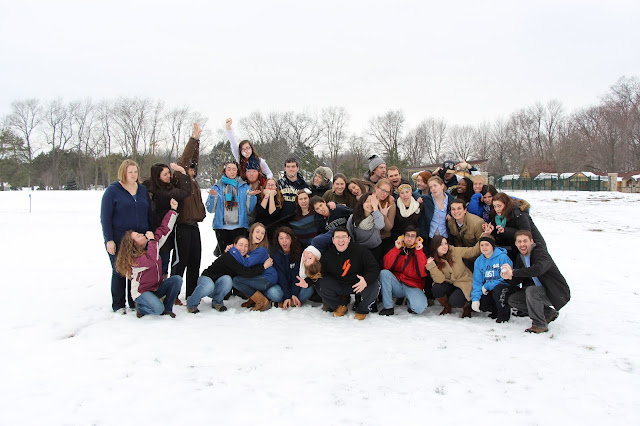When it was evening, there came a rich man from Arimathea named Joseph, who was himself a disciple of Jesus. He went to Pilate and asked for the body of Jesus; then Pilate ordered it to be handed over. Taking the body, Joseph wrapped it [in] clean linen and laid it in his new tomb that he had hewn in the rock. Then he rolled a huge stone across the entrance to the tomb and departed. (Matthew 27: 57-60)
 At this station, we reach the end of Jesus’ journey of suffering. After persecution, torture, crucifixion, and ultimately death upon the cross, it seems that Jesus’ time on earth has finished. And yet, our journey goes one step further – following Jesus to the tomb. It is here that we meet Joseph, and learn that he was a disciple of Jesus. When we first hear this story, we may be inclined to think – who is this Joseph? Where has he been all along? If he was truly a disciple, why have we never heard of him until after Jesus has died?
At this station, we reach the end of Jesus’ journey of suffering. After persecution, torture, crucifixion, and ultimately death upon the cross, it seems that Jesus’ time on earth has finished. And yet, our journey goes one step further – following Jesus to the tomb. It is here that we meet Joseph, and learn that he was a disciple of Jesus. When we first hear this story, we may be inclined to think – who is this Joseph? Where has he been all along? If he was truly a disciple, why have we never heard of him until after Jesus has died?I like to think maybe Joseph was a little like me. I imagine he was quiet, maybe a little introverted; a devout believer but not an outgoing evangelizer. My guess is Joseph didn't do anything as bold or significant as the other disciples may have, but he was a loyal follower who happened to blend into the crowd most of the time.
There’s another thing I imagine Joseph and I have in common: we see the significance of the small things. Picture the scene of the crucifixion after Jesus has breathed his last. The crowd has been literally and figuratively shaken, people are crying, angry, and confused, and the body of the man who many now believe may truly have been the Savior is limp and lifeless, nailed to a cross. It seems that, for all intents and purposes, hope is lost. Still, Joseph decides to take action rather than stand idly and mournfully by.
The actions he takes are not grandiose. They are simple, and small, and may almost seem like too little too late. Joseph didn't throw himself in front of the guards, beg to take Jesus’ place, or do anything else to intervene before Jesus was killed. Perhaps it was because he knew there wasn't
anything he could do to stop the process. So instead, he did what he could. With love and care, he carried Jesus. He cleaned him up, gave him fresh linens, and laid him in a resting place. He showed him dignity, compassion, and love when everyone else looked the other way.
This reminds me of what I do at Cabrini Green Legal Aid. My role as the Client Concierge places me at the front desk of our office where I interact with clients and potential clients over the phone and in person. My job is not glamorous, and my duties are not substantial. Quite frankly, sometimes, I feel a little useless and hopeless. I answer phone calls, chat with clients in the waiting area, and perform office-type tasks to assist my coworkers. I spend a lot of my time listening to stories that make my heart ache. I have listened to a mother cry on the phone as she tells me her daughter has been taken away and she doesn't know what to do. I have looked into the angry eyes of a man who swears the system has done him wrong. And I have hugged the woman begging for help for her incarcerated son who has been accused of murder. But here I am – not the attorney who can stand in court and fight for justice, not the social worker who can find resources and support for a struggling family, just the girl sitting at the front desk taking everything in.
So, I am charged to do what I can: I sit and I listen. When it’s appropriate or I am asked to, I provide tissues or hugs, give words of comfort or share in prayers. But mostly, I open my heart and I listen. Most of the time, I cannot fix the problems our clients are facing, and I cannot save them from pain or frustration. Like Joseph, all I can do is show them the dignity, love, and compassion they can’t seem to find anywhere else. I hope that with my time and patience, I offer them a brief respite from the pain of a difficult journey, and push them onward, like Joseph prepared Jesus, toward the hope of new promise and new life.








